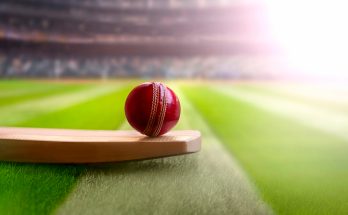There are many different effective ways to overcome insomnia. Behavioral medicine, yoga, and avoiding stimulants are some examples. Behavioral medicine can be used to improve sleep quality, but it can also be used to combat the stress that can lead to insomnia. Yoga is a wonderful way to relax, but it may not be the right solution for everyone. Cognitive therapy is another effective treatment for insomnia. Practicing cognitive therapy can help you get a better night’s sleep without taking over your life.
Table of Contents
Behavioral Medicine
Cognitive behavioral therapy (CBT) is one of the most effective methods of overcoming insomnia. It teaches the person how to identify and change unhelpful beliefs and behaviors that affect their sleep. In this approach natural compounds from autoflower seeds may help a lot.
Behavioral therapy is effective for overcoming insomnia and has a long lasting effect. This type of therapy helps the person develop new sleeping habits, reduces the impact of negative thoughts and worries, and helps them create a schedule for their sleep.
Behavioral medicine is one of the most effective methods for overcoming insomnia, because it is designed to treat the underlying causes of sleep problems. Insomnia is often the result of a broader issue, such as a depressive disorder. Therefore, sleep medication should treat the underlying problem, such as substance abuse or a health problem. Behavioral medicine is the best option for overcoming insomnia, but it does require some effort on the part of the patient.
Yoga
Among the effective ways to overcome insomnia, yoga can be beneficial for both clinical and recreational users. It has a high rate of success in treating a variety of sleep disorders, including insomnia, poor sleep quality, and excessive daytime waking. Its benefits are greatest for people with these characteristics, which include chronic or persistent sleeplessness, difficulty falling asleep, and poor quality of sleep. In addition to improving sleep, yoga can be beneficial for individuals with chronic insomnia, helping to reduce the need for medication.
There are many promising results from yoga therapy, but further studies are needed to prove its effectiveness. One recent study involved 410 survivors of cancer, who found that yoga improved sleep quality, reduced fatigue, and reduced the need for sleep medications. Another study examined the effectiveness of yoga on post-menopausal women suffering from insomnia. Participants found that yoga improved their sleep quality, decreased their overall stress levels, and improved their quality of life.
Avoiding Stimulants
There are a number of medications for insomnia. These include prescribed medication and over-the-counter (OTC) products. The most important thing to do is to avoid stimulants, such as caffeine, at least four hours before bedtime. A short nap, such as a 15-minute power nap, can also make it difficult to fall asleep. Try to avoid naps after 3 p.m. and avoid alcohol and nicotine. Intake of stimulants will keep you awake for several hours after dinner, making it harder to fall asleep at night.
To combat insomnia, avoid caffeine, nicotine, and chocolate, which all promote sleepiness. You should also avoid activities that reward you for remaining awake. A good tip to help you stay awake at night is to read a book. Avoid watching TV or studying for a test before bedtime. In addition, stay away from caffeine-based energy drinks. Alcohol will speed up your onset of sleep but can disrupt your sleep in the second half. Avoid vigorous exercise before bed, as this will also make you feel groggy.
Sleep Restriction
A common insomnia treatment is sleep restriction. This therapy works by limiting the amount of time you spend in bed and lying awake. It is especially effective for individuals who are tired or have trouble sleeping. Initially, you may have to stay up later than usual, but this will gradually reduce your sleep time. You will be more tired during the day. Eventually, you will be able to sleep longer. Sleep restriction is also effective for people with other medical conditions, such as bipolar disorder or seizures.
Sleep restriction can have many benefits. It can help you fall asleep more quickly and wake up less frequently, resulting in a more stable sleeping pattern. The goal is to get the sleep you need while minimizing the amount of time you spend awake. However, this method requires a lot of willpower. Therefore, you should only apply it to a short-term problem, and try it out for a few weeks.





